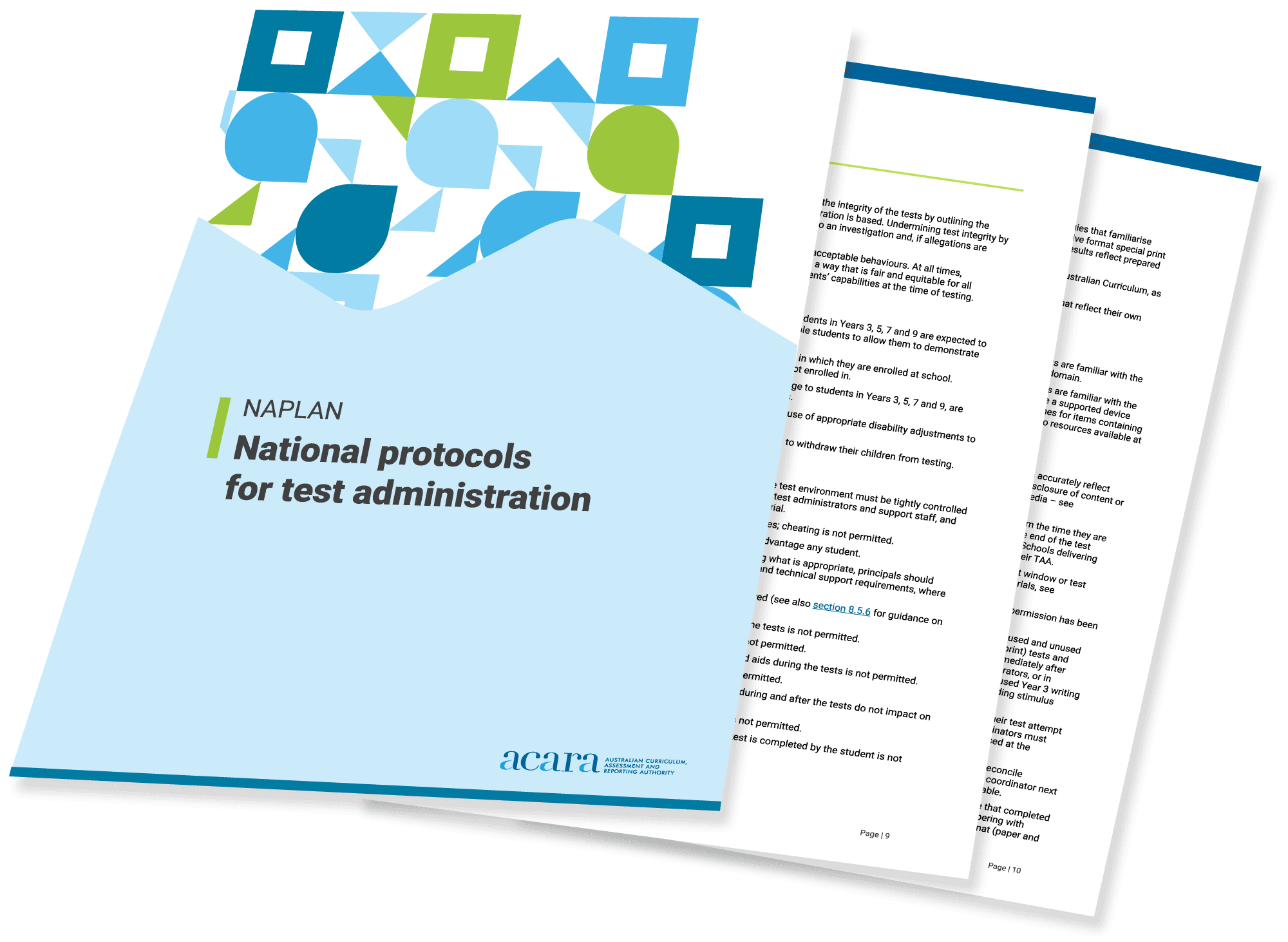National protocols for test administration

The nationally agreed protocols can be found in the NAPLAN national protocols for test administration (PDF 786 KB). The protocols provide detailed information on all aspects of the administration of the tests.
In cases where individual students with disability require adjustments to access the tests, these adjustments are provided at the school in consultation with the relevant test administration authority (TAA). Further information about adjustments is available at Adjustments for students with disability.
Principals, NAPLAN coordinators and test administrators should be fully aware of all requirements in the protocols. Schools should contact their TAA if there are problems in meeting these requirements or if they need further guidance.
Key points to note
Test security
- The security and confidentiality of the tests must be maintained from the time they are accessed to the end of the test security period.
- Principals are responsible for ensuring that students sitting the tests are appropriately supervised. Appropriate supervision during test administration includes the delivery of the test administration script.
- Principals must notify their TAA immediately if test material security has been breached.
- Schools are responsible for returning or destroying all unused alternative format materials, following TAA instruction.
- Catch-up or rescheduled tests are not permitted for students who abandon the tests due to illness or injury.
Adjustments for students with disability
-
Adjustments are provided to students with disability to support access to the tests and encourage maximum participation. For more information, see Adjustments for students with disability.
- Students with disability may exercise their usual access to standard non-educational facilities and furniture, as well as their usual medication, food or medical equipment that all form part of their everyday assessment adjustments.
top
Test integrity
To maintain the integrity of the tests and the testing process, the protocols must be followed carefully. To assist TAAs and schools to understand appropriate behaviours and what a breach of protocols entails, a code of conduct is provided in the protocols, along with information on the process following any breach that is reported.
The NAPLAN code of conduct is designed to uphold the integrity of the tests by outlining the fundamental principles upon which the tests are based. In order to provide an accurate assessment of students’ capabilities at the time of testing, at all times educators must ensure that tests are administered in a way that is fair and equitable for all students.
ACARA, in cooperation with states and territories, will continue to review the protocols to ensure that tests are delivered in an appropriate and consistent manner across all states and territories. All schools are required to administer the tests in a professional manner.
Test incidents
Generally, reports of improper conduct are very small in the context of all the students and schools participating in NAPLAN across the country. Breaches of protocol and allegations of cheating or improper behaviour are taken seriously and investigated thoroughly. Substantiated cases of improper behaviour may lead to invalidation of student results and be reported publicly.
ACARA works closely with a range of stakeholders across the country to develop nationally consistent guidelines for the fair and equitable investigation and reporting of alleged test incidents.
The Guidelines for managing test incidents in schools (PDF 340 KB) are available to support school principals investigate test incidents, including allegations of cheating.
top